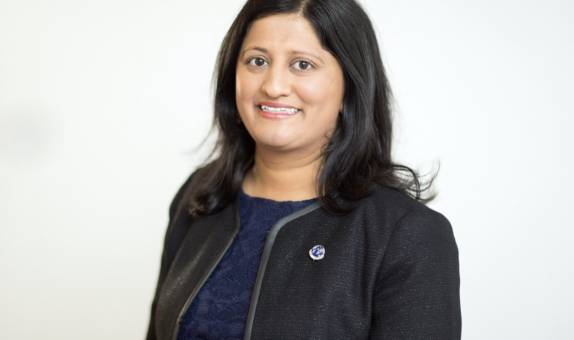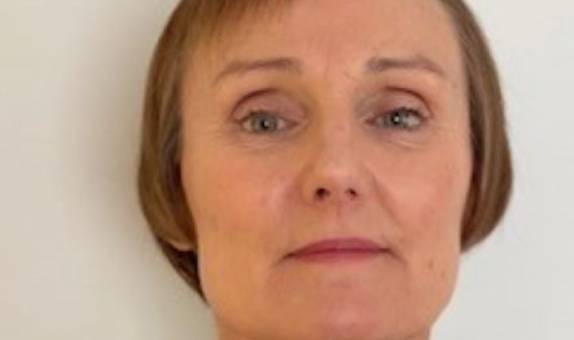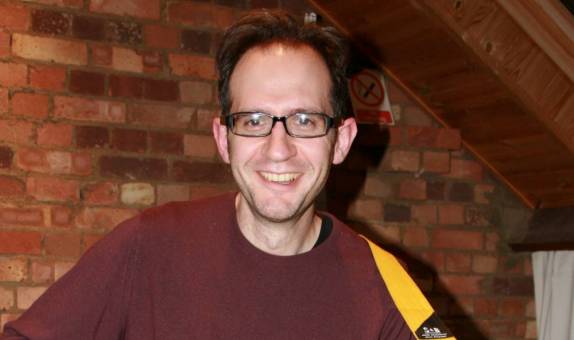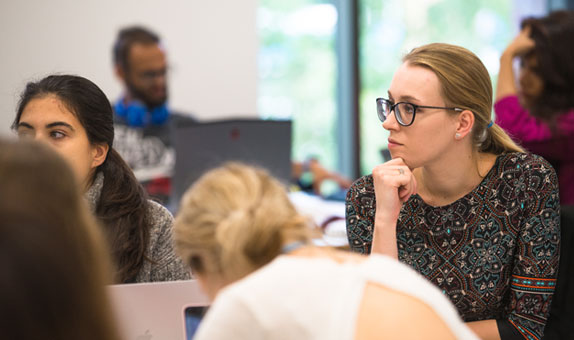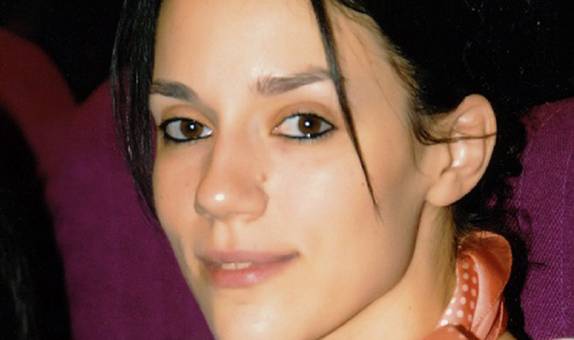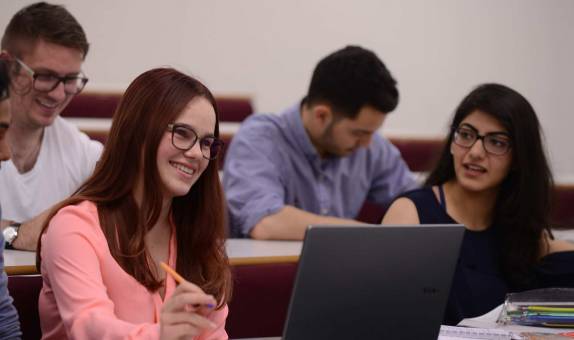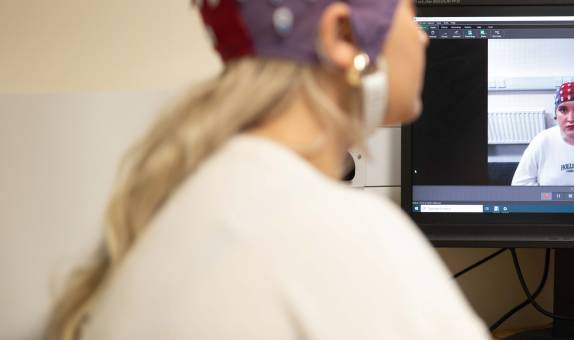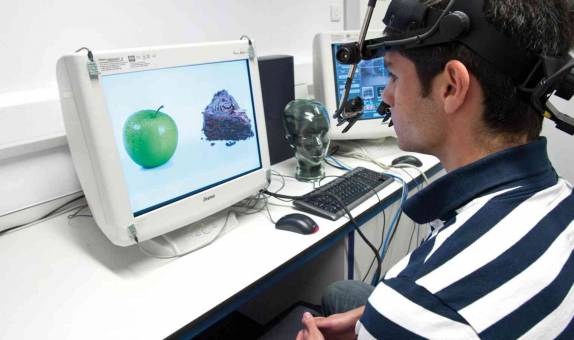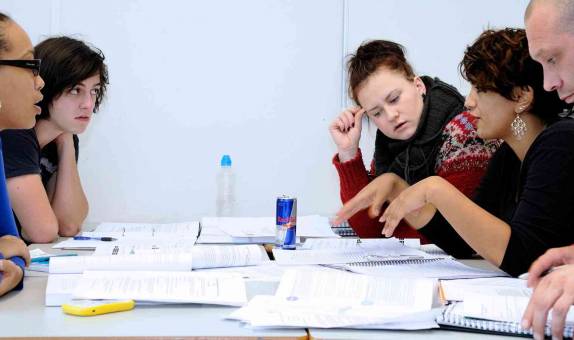Foundation Year in Social Sciences

Teaching Excellence Framework (TEF) Gold award
Our commitment to high quality teaching has been recognised with a TEF Gold rating. The University has received an overall rating of Gold, as well as securing a Gold award in the framework's two new student experience and student outcomes categories.
Why choose this course?
The Foundation year in Social Sciences takes place for one year before your degree. It will provide you with a solid grounding of knowledge and study skills in preparation for your degree.
This foundation year is taught at the University, giving you a taste of academic life in a supportive environment. You'll be introduced to professional skills, research and critical thinking skills, numerical skills, and critical reflections on global issues in the social world. Lectures, labs and tutorials will give you a broad understanding across subjects including economics, criminology, sociology and psychology.
You will study four year-long modules that cover all subject areas that make up the social and behavioural sciences. The subjects covered on this course are criminology, sociology, psychology and economics. You will develop a foundation knowledge of these subjects and begin to explore the boundaries and overlap between these inter-related disciplines.
You will cultivate a range of study skills that will support your transition onto your chosen BA/BSc. These include academic reading, developing arguments, understanding assessment strategies and giving presentations. You will also learn how to carry out research and conduct statistical analysis.
Upon successful completion of this foundation year you will progress to Year 1 of your chosen degree programme.
This foundation year is available with these courses:
Choose your pathway
- Business Economics BSc (Hons)
UCAS code L101 - Business Psychology BSc (Hons)
UCAS code C814 - Criminal Justice BSc (Hons)
UCAS code M291 - Criminology and Forensic Psychology BSc (Hons)
UCAS code LF82 - Criminology and Sociology BSc (Hons)
- UCAS code L6L3
- Criminology BSc (Hons)
UCAS code L312 - Economics BSc (Hons)
UCAS code L102 - Financial Economics BSc (Hons)
UCAS code L11A - Forensic Psychology BSc (Hons)
UCAS code C816 - Psychology BSc (Hons)
- UCAS code C801
- Psychology with Counselling BSc (Hons)
UCAS code C891 - Psychology with Criminology BSc (Hons)
UCAS code CM98 - Sociology BSc (Hons)
UCAS code L301
| Attendance | UCAS code | Year of entry |
|---|---|---|
| 1 year full time | UCAS codes are included on the relevant webpage for the course you would like to study | 2024 (Clearing) 2025 |
| Main Location | Penrhyn Road |
Reasons to choose Kingston University
- This course is a stepping-stone onto your chosen BA/BSc degree course
- It prepares you with a foundation of knowledge in social sciences disciplines whilst developing key academic skills
- You'll gain all of the benefits of being a Kingston University student before your start your degree
What you will study
Throughout the year-long course, you will cover criminology, sociology, psychology, economics and politics, regardless of the specialist area you will be studying the following year. This will enable you to gain an overview of the social sciences and it will guide you in the direction of the social sciences degree that you're particularly interested in.
Foundation year
The foundation year of the course is made up of four year-long modules that cover criminology, sociology, psychology, economics and politics.
Core modules
Overcoming the challenges in understanding individual and collective human behaviour
30 credits
This is a core module for all students following the Foundation in Social and Behavioural Sciences programme.
The module will introduce you to the wide spectrum of disciplines and approaches that encompass the social and behavioural sciences. The module will address both common features across the social and behavioural sciences (i.e. the study of collective and individual human behaviour), and the defining features of the individual disciplines.
A key focus will be on the overlapping and somewhat artificial nature of the boundaries between the different disciplines in the social and behavioural sciences.
In addition, the module will enable you to engage with key qualitative methods used in the fields examined. By the end of the module, you will have gained a comprehensive overview of the social and behavioural sciences as a field of study, of the individual yet overlapping disciplines within the field, and how they are examined.
Practical Research Skills
30 credits
This module offers you the opportunity to carry out a research project on a topic agreed in consultation with a supervisor. Supervisory sessions with an academic supervisor will help guide you to conduct a literature review, formulate a research question, design a research study, collect data and present findings.
Becoming an Active Learner
30 credits
This module will provide you with a general introduction to the Social Sciences through the critical lenses sociology and criminology. Therefore the module uses the creative pedagogy of film making to help you explore the social nature of crime, deviance and social control, and familiarise yourself with key ideas relevant to explaining these phenomena.
The module will also enable you to develop the academic skills necessary to succeed at university, such as active academic reading, developing arguments, understanding assessment strategies, ways of working in groups, giving presentations and library skills. You will develop your wider self-awareness as a learner and be encouraged to actively shape your own learning. You will produce a portfolio of work to include:
- a group podcast
- the production of a group audio-visual film
- peer assessment task based on the audio-visual film
- a reflective essay worth 40% which will demonstrate your abilities to identify and research of topics of interest and consider how your learning informs your understanding of the world and your lived experience outside the classroom.
Using Quantitative Methods
30 credits
Through this module you will develop competence in a range of mathematical and statistical techniques. You can then apply these skills to a range of contexts in social and behavioural sciences.
The module reinforces basic mathematical concepts to the level required for entry in the BA/BSc programmes offered by the School of Law, Social and Behavioural Sciences. It is accessible to students with a wide range of previous mathematical experiences.
Future Skills
Knowledge to give you the edge
Embedded within every course curriculum and throughout the whole Kingston experience, Future Skills will play a role in shaping you to become a future-proof graduate, providing you with the skills most valued by employers such as problem-solving, digital competency, and adaptability.
As you progress through your degree, you'll learn to navigate, explore and apply these graduate skills, learning to demonstrate and articulate to employers how future skills give you the edge.
At Kingston University, we're not just keeping up with change, we're creating it.

Entry requirements
If you would like to join us through Clearing 2024, please call our Clearing line on 0800 0483 334 (or +44 020 8328 1149 if you are calling from outside the UK) and speak to our friendly and knowledgeable hotliners who will be able to provide information on available courses and will guide you through your options.
Please note the entry requirements listed below are for 2025 entry only.
Teaching and assessment
Timetabled learning and teaching on this course includes lectures, small group tutorials and seminars.
Who teaches this course?
You will be taught by an experienced teaching team whose expertise and knowledge are closely matched to the content of the modules on this course. The team includes senior academics and professional practitioners with industry experience.
Postgraduate research students may also contribute to the teaching of seminars under the supervision of the module leader. The following group of staff members are currently involved in the delivery of different elements of this course. This pool is subject to change at any time within the academic year.
Why take a foundation year?
If you would like to study a social sciences degree at Kingston University but are not yet ready to join the first year of a BA/BSc course then you may want to consider studying with a foundation year. It may be that you:
- are expecting to meet the entry requirements needed for the foundation year
- or may not have received the grades required for direct entry onto the first year of your chosen BA/BSc programme
- or you have been away from education for a period of time and would like an introduction back into study prior to taking your degree.
Whatever the reason, this option will prepare your for the transition onto your chosen degree programme.
Course fees and funding
Additional costs
Depending on the programme of study, there may be extra costs that are not covered by tuition fees which students will need to consider when planning their studies. Tuition fees cover the cost of your teaching, assessment and operating University facilities such as the library, access to shared IT equipment and other support services. Accommodation and living costs are not included in our fees.
Where a course has additional expenses, we make every effort to highlight them. These may include optional field trips, materials (e.g. art, design, engineering), security checks such as DBS, uniforms, specialist clothing or professional memberships.
After this course
Upon successful completion of this foundation year you will progress to Year 1 of your chosen degree programme.
Course changes and regulations
The information on this page reflects the currently intended course structure and module details. To improve your student experience and the quality of your degree, we may review and change the material information of this course. Course changes explained.
Programme Specifications for the course are published ahead of each academic year.
Regulations governing this course can be found on our website.



